MAPC Staff Meeting
Digital Access Overview

Josh Eichen, Senior Economic Development Planner
Carolina Prieto, Community Engagement Manager
Ryan Kelly, Digital Services Manager
Brian Luther, Municipal Services Specialist
Digital Justice Principles: Access
- Digital justice ensures that all members of our community have equal access to media and technology, as producers as well as consumers.
- Digital justice provides multiple layers of communications infrastructure in order to ensure that every member of the community has access to lifesaving emergency information.
- Digital justice values all different languages, dialects and forms of communication.
Source: Allied Media, Teaching Community Technology Handbook
MAPC's Digital Access Overview
Development of Municipal Digital Access and Equity Plans
Procurement Assistance of Equipment/Services
Workforce Development
Policy
Data Transparency and Accessibility

Digital Access Overlap
Municipal IT Capacity and Infrastructure
Future of Energy Grid
Public Health Data Collection
Building Retrofits
Workforce Development

Public Meeting Processes
Who's Job is it to Solve the Digital Divide?

Planners
Libraries
School Districts
IT Directors
Housing Authorities
Healthcare Providers
Workforce Boards
Community Based Organizations
Elected Officials
Private Sector
The State???


Three Determining Factors of Digital Access



Connection
Adequate Device
Literacy
Fast
Affordable
Router
Personal Computer /Laptop
Use of Technology
Ensuring functioning equipment
Evaluating quality of information and privacy risks

Connection in Chelsea & Revere
Is it Fast?
40 – 50%
of households in Chelsea and Revere with internet access do not have "broadband" speeds
This impacts reliability
~6,104 (19%)
Chelsea / Revere households lack internet service.
~40%
of survey respondents do not believe their internet service is affordable.
72%
of survey respondents have had to cancel or change their internet subscription because it is too expensive

Is it Affordable?
Speed Sources: MLab, Microsoft US Broadband Usage, Demographic Source: US Census ACS 5 Year, 2019
Device Access in Chelsea & Revere
How accessible are devices?
12%
of Chelsea & Revere households have no computing device at all
23%
of survey respondents disagree with "People in my household always have access to a computer if needed."
About 60%
of Chelsea / Revere households with internet lease a router from their service provider
At least 1,124
Chelsea School District families may be relying on T-mobile hotspots for internet service

Are routers adequate?

Device Source, Computers: US Census ACS 5 Year, 2019. Device Source, Routers: MAPC Survey - 5/26/21, Everett School District
Literacy in Chelsea & Revere
Using Technology
~75%
of survey respondents agree with "I feel confident in my ability to use a computer/laptop/Chromebook
~50%
of survey respondents agree with "I feel confident that I am able to resolve issues related to my internet connection"

Ensuring Functioning Equipment

Evaluating Information and Privacy Risks
Anecdotal information gleaned from stakeholder conversations indicates that there are serious concerns related to privacy, particularly among the immigrant population
Source: MAPC Survey - 5/26/21
Why is it this way?!
Legacy of Cable
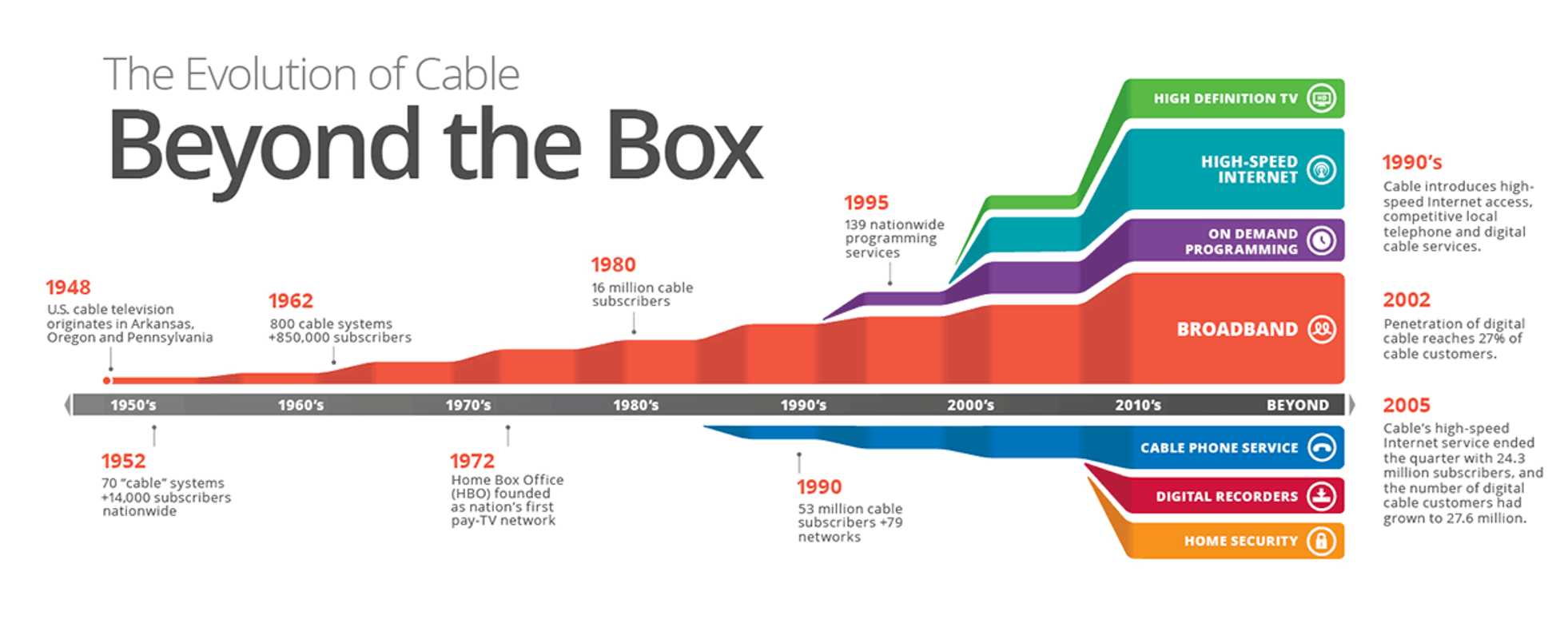
Image Source: https://calcable.org/learn/history-of-cable/
Cable Providers in Everett
Comcast
RCN
Incumbent Cable Franchise, Full Coverage in Everett
In 2011 Comcast had 10,603 Cable TV Subscribers.
In 2020 it had only 7,000
Source: Mass DTC Form 500, 2011 - 2020
Competitive Cable Franchise, Limited Coverage in Everett
In 2017 RCN had 2,171 Cable TV Subscribers.
In 2020 it had only 957
Accessing the Internet Using Cable

Data Center


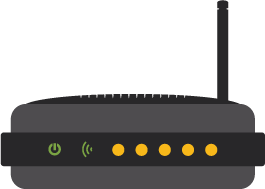



Fiber (Fast)

Cable (slower)

Cable (slower)
Wifi (slower) or ethernet (more reliable)
Slows down every step
The farther fiber optic cables go, the faster the internet
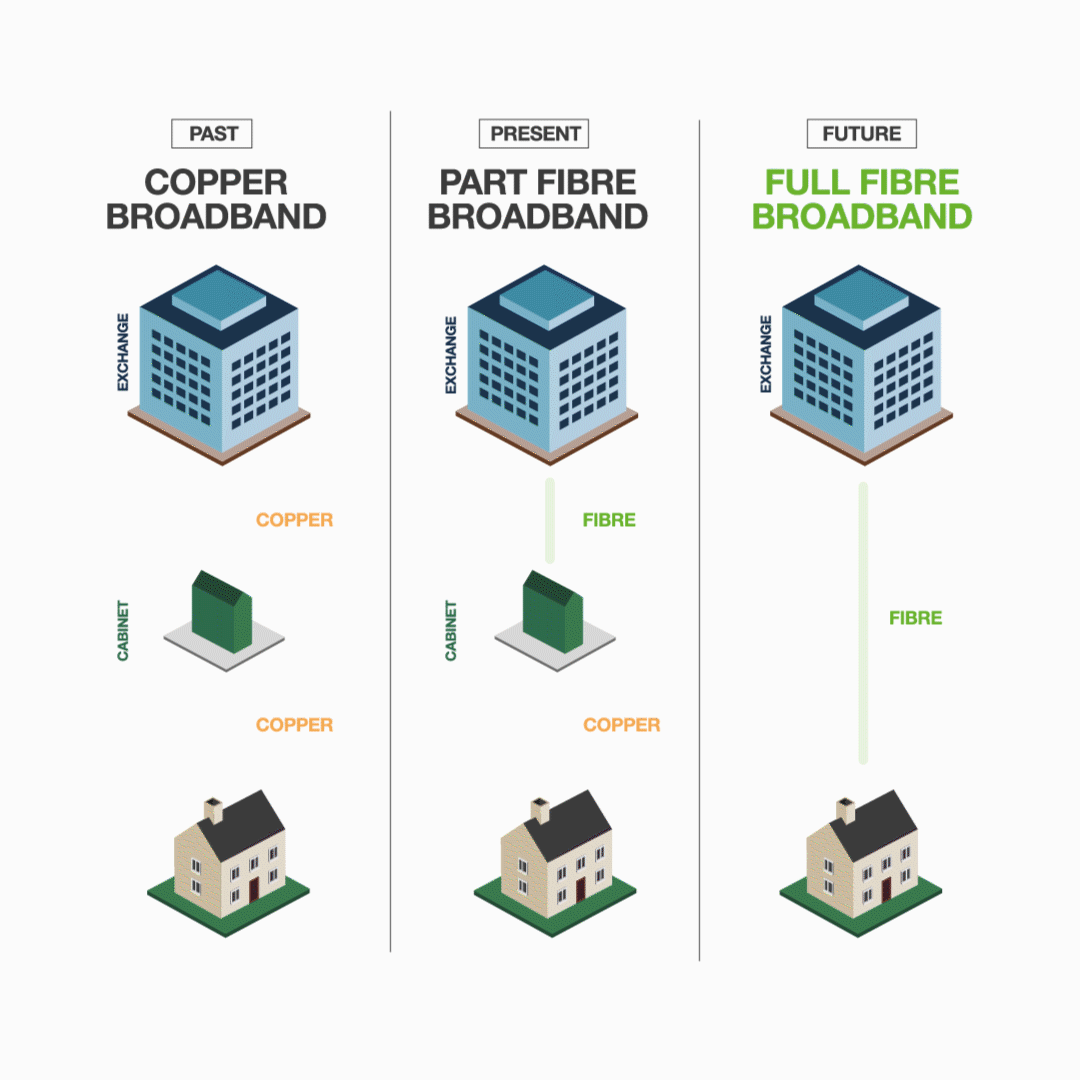
Copper wire slows the connection
Household size further complicates things
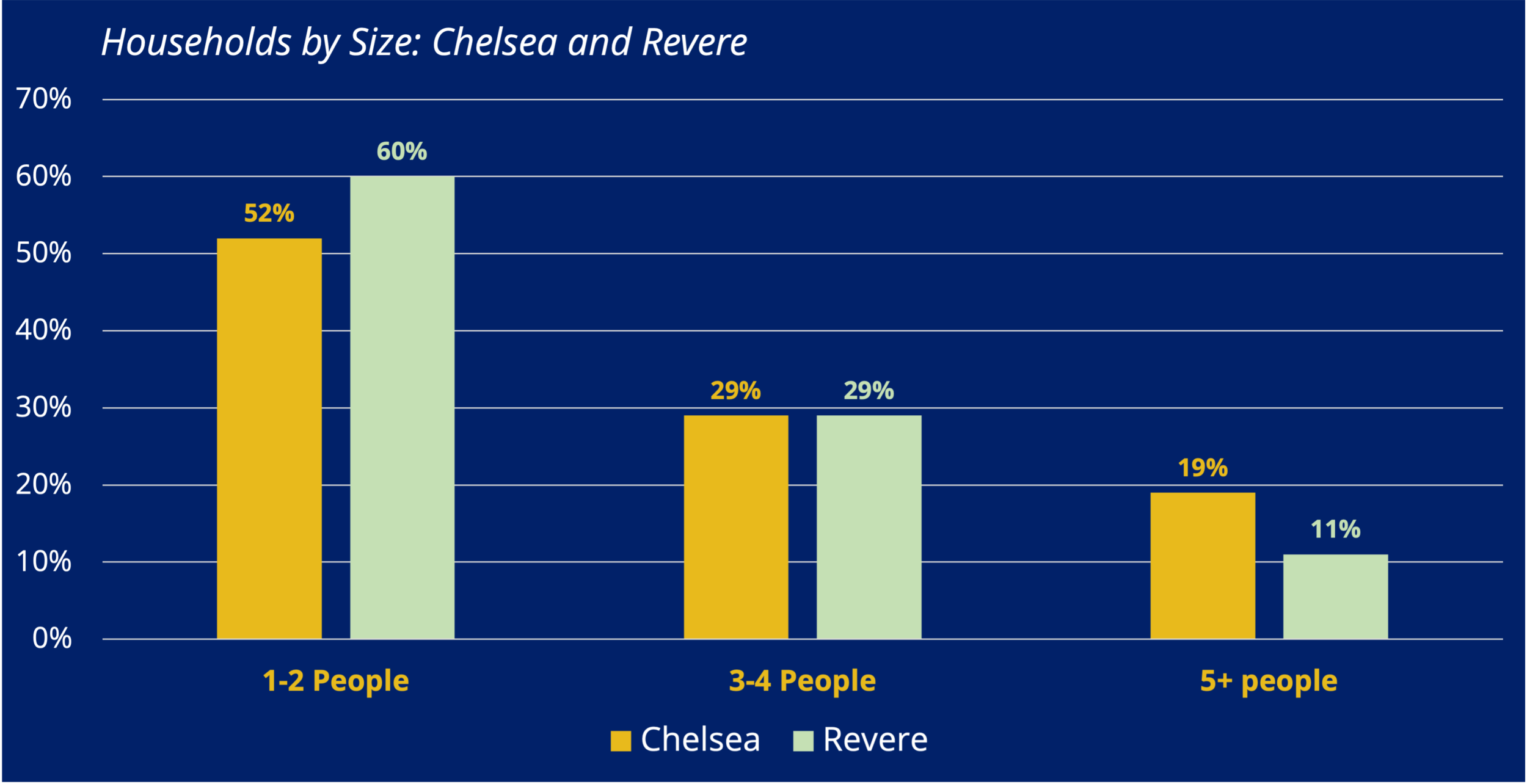
For 1-2 people, internet should be at least 25-50 Mbps
$10-$30 per month
For 3-4 people, internet should be at least 50-100 Mbps
$35-$50 per month
For 5+ people, internet should be at least 200-500 Mbps
$50-$70 per month
Source: US Census ACS 2019 5 Year, AllConnect
Household size further complicates things
Survey question:
How often does more than one person need to be on the Internet at the same time?
~83%
Frequently or Always
Survey question:
Have you ever had to change or cancel your internet subscription because it was too expensive?
~76%
Spanish Respondents, Yes
Source: MAPC Survey - 5/26/21
~66%
English Respondents, Yes
Internet Subsidies
~8,000
families in Chelsea and Revere are eligible for Internet Essentials and the Emergency Broadband benefit fund
Comcast Internet Essentials Plan offers basic internet service for $10 / Month to income eligible households (SNAP, Free or Reduced Lunch, etc)
The Emergency Broadband Benefit program will subsidize $50 for all Comcast service plans
Only 3,700
households take advantage of Internet Essentials -- less than half of all eligible
Why don't people take advantage?
Source: Comcast, National Center for Education Statistics
Preference for local support
Survey question:
I would prefer to have a local resource that could support my technology needs, rather than relying on internet service providers.
~96%
Spanish Respondents, Yes
Source: MAPC Survey - 5/26/21
~86%
English Respondents, Yes
Why is it this way?
The cable infrastructure at the household level is likely impacting service and reliability.
A lack of competition, shrinking cable service revenues, and a lower income service area are likely disincentives for investment from the private sector.
At the household level, individuals are likely using outdated or ineffective routers and devices.
Internet subscribers may not have the confidence or technical skills to trouble shoot internet speed or function issues.
Larger households who may need faster speed packages may be cost burdened and unable to afford those plans.
Individuals who are eligible for subsidized services may not be taking advantage of them due to a lack of information, trust, stable housing, documentation, or other structural and social factors.
Where is the data?

Percent of Households without Internet Access

Percentage of Households without an Internet Subscription
15.8% of Everett households lack internet service.
38% of Everett households earning less than $20,000 per year lack internet service.
12% of Everett households rely on smartphones for internet service
One-third of the households with internet access do not have "broadband" speeds



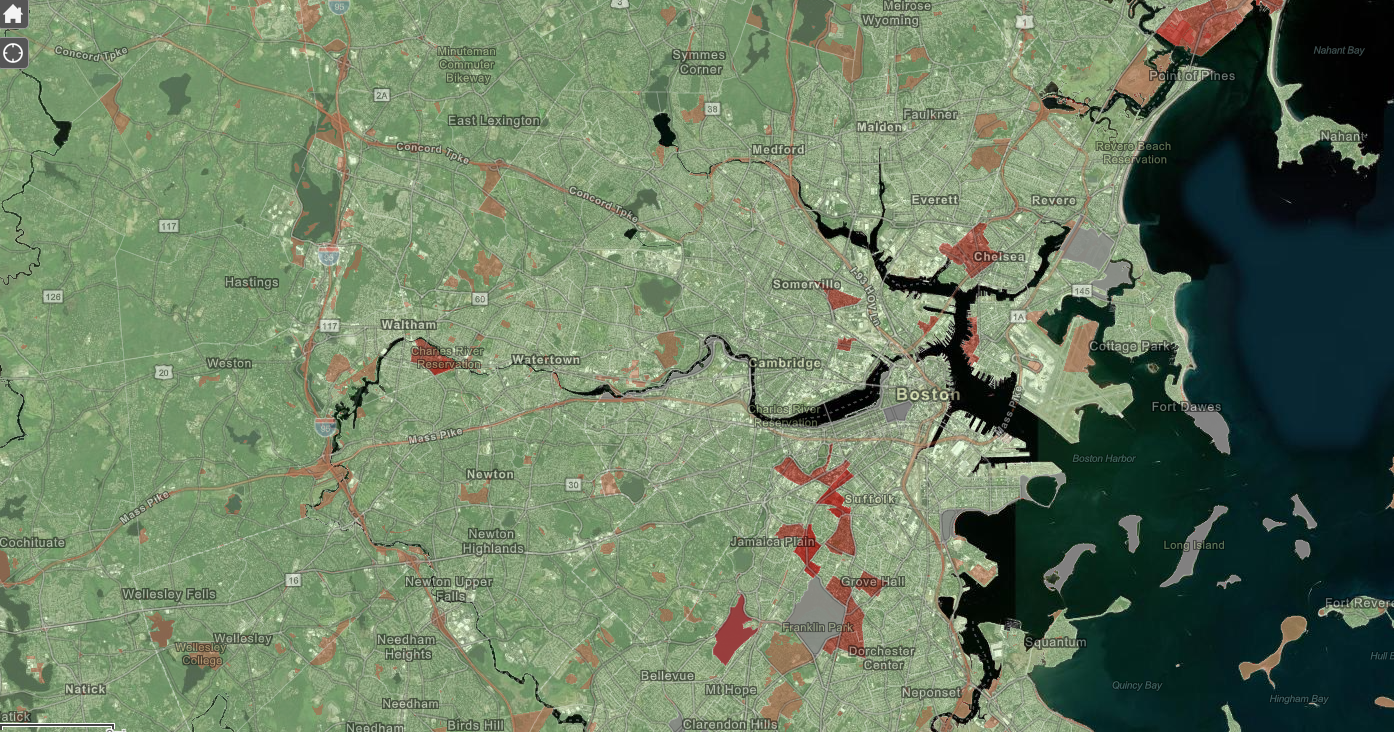
The Indicators of Broadband Need map was created by the United States Department of Commerce, National Telecommunications and Information Administration (NTIA).
The map uses several different data sources to show information on broadband availability within the United States.
Layers in this map were created using data sourced from the American Community Survey collected by the U.S. Census, Measurement Lab (M-Lab), Ookla, Microsoft and the Federal Communications Commission (FCC).
https://broadbandusa.maps.arcgis.com/apps/webappviewer/index.html?id=ba2dcd585f5e43cba41b7c1ebf2a43d0
GeoTel
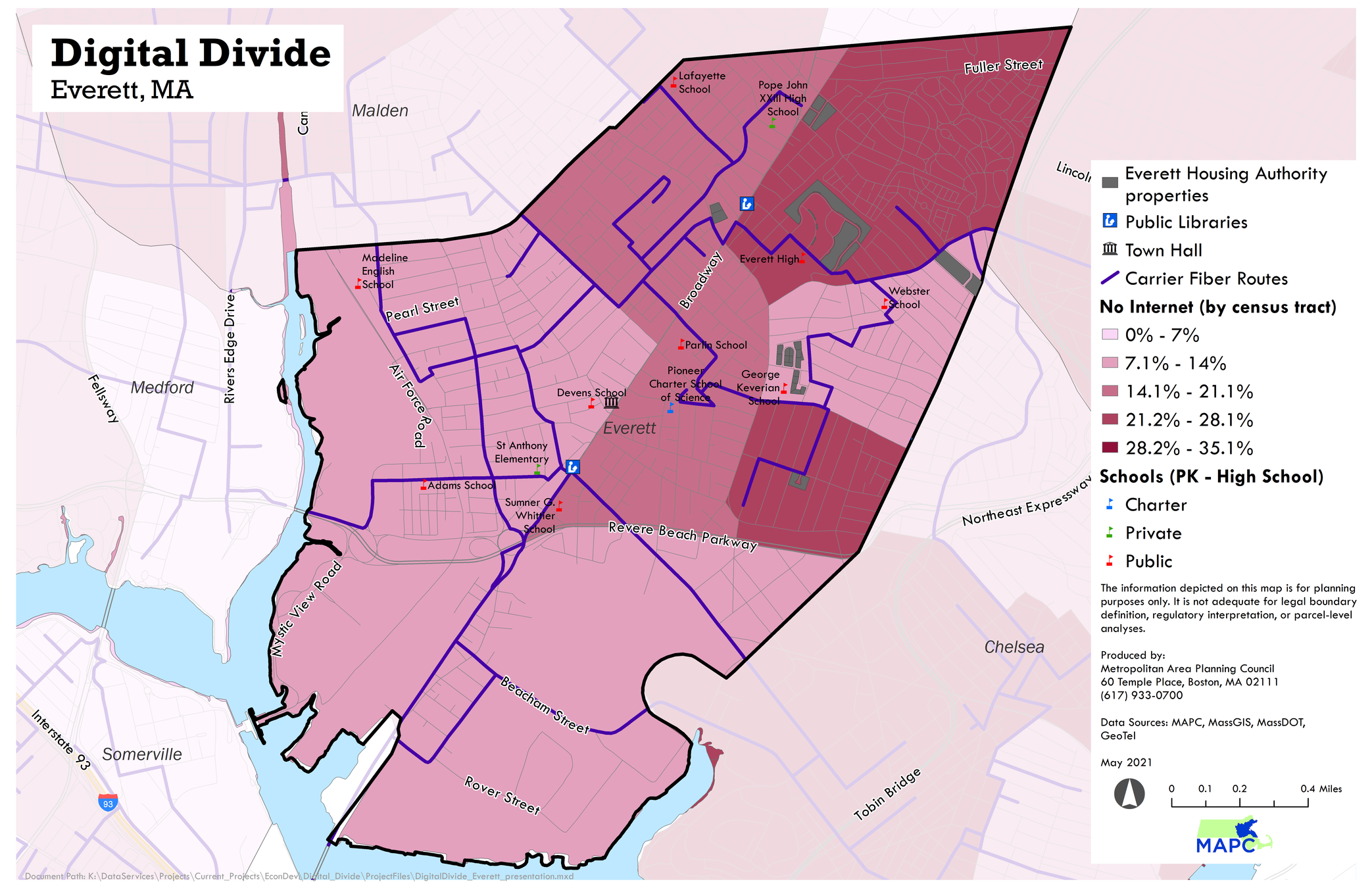
Additional Areas of Work
MBI Gateway City WiFi Grant
- Deploying $500k in funding to install WiFi systems in Chelsea, Everett, Revere, Quincy and Malden
-
Facilitating a regional discussion related to ARPA priorities among municipal, state, and non profit stakeholders
Regional Coordination
Please reach out to Josh Eichen! jeichen@mapc.org
- Working with the MassHire system to develop a digital navigators model using YouthWorks program funds.
Digital Navigators Development
What Are the Answers?

Funding Opportunities
Mass Broadband Institute Gateway City WiFi Grant Program
- Up to $100,000 in grant funds to support new WiFi installations in Everett.
- Public Housing/Affordable Housing
- Downtown: Where else?
-
American Rescue Plan Package
- ~1.2B Deployed to Communities in MAPC Region
- ~$5.4B available to the Commonwealth
- Broadband Infrastructure, Digital Literacy, and Digital Access are all eligible uses of funding